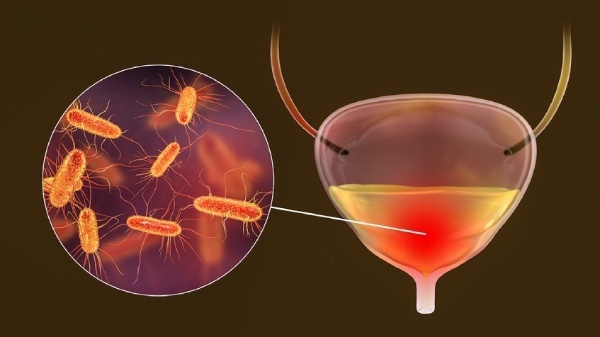Cystitis: Causes, Risks, and Why Hygiene Matters
Cystitis is one of those health conditions that many people might not think about until it happens to them. Often described as a painful and uncomfortable inflammation of the bladder, cystitis is more common than you might realize. If you’ve ever experienced the burning sensation when you pee, the constant urge to visit the bathroom, or the frustrating discomfort in your lower abdomen, you’re likely familiar with its symptoms.
What is Cystitis?

Cystitis is essentially an inflammation of the bladder, often caused by a bacterial infection. While the bladder is designed to store urine and keep bacteria out, certain circumstances can lead to bacteria entering and multiplying, resulting in this painful condition. Cystitis isn’t exclusive to bacterial causes—it can also stem from non-infectious triggers such as chemical irritants or underlying medical conditions.
The condition is particularly common in women, though men and children can also experience it. Women are at greater risk because of their shorter urethra, making it easier for bacteria to travel to the bladder. However, regardless of age or gender, anyone can fall victim to this uncomfortable ailment.
The Common Causes of Cystitis
Understanding the causes of cystitis is the first step to prevention. Here are the most common culprits:
1. Bacterial Infections
The majority of cystitis cases are caused by bacterial infections, specifically Escherichia coli (E. coli). This bacterium, which is naturally found in the intestines, can enter the urinary tract through the urethra. Once inside, it can attach to the bladder walls, causing irritation and inflammation.
2. Poor Hygiene Practices
Improper wiping after using the bathroom is a major cause of cystitis, especially for women. Wiping from back to front can transfer bacteria from the anal area to the urethra, increasing the risk of infection.
3. Sexual Activity
Sexual intercourse can introduce bacteria into the urinary tract. Women who are sexually active may experience what’s often referred to as “honeymoon cystitis” due to the increased frequency of infections after intimacy.
4. Irritating Products
Certain hygiene products, like heavily scented soaps, bubble baths, and deodorants, can irritate the urethra and bladder lining, making it easier for infections to develop. Chemical irritants disrupt the natural balance of the urinary tract, leaving it vulnerable.
5. Catheter Use
For individuals who require urinary catheters, the risk of cystitis is higher. Bacteria can easily cling to the catheter and enter the bladder, leading to infections.
6. Underlying Health Conditions
Some medical conditions, like diabetes or kidney stones, can increase the likelihood of developing cystitis. A weakened immune system also makes it harder for the body to fight off bacterial invaders.
Recognizing the Risks: Who is Most Vulnerable?
While anyone can develop cystitis, certain factors can increase your risk:
- Women: As mentioned, the shorter urethra in women makes it easier for bacteria to reach the bladder.
- Pregnancy: Hormonal changes during pregnancy can relax the urinary tract, making infections more likely.
- Menopause: Reduced estrogen levels in postmenopausal women can lead to thinning of the bladder lining, increasing susceptibility.
- Frequent Sexual Activity: The more active your sex life, the higher your risk of introducing bacteria into the urinary tract.
- Elderly Individuals: A weakened immune system and reduced bladder function make older adults more prone to infections.
- Diabetes Patients: High sugar levels in the urine provide a fertile environment for bacteria to thrive.
Symptoms That Shouldn’t Be Ignored
Cystitis comes with a range of uncomfortable symptoms. Recognizing these early can help you seek treatment and prevent complications:
- A burning or stinging sensation while urinating
- A constant urge to urinate, even if only a small amount of urine is passed
- Cloudy or foul-smelling urine
- Discomfort or pain in the lower abdomen
- Blood in the urine (in severe cases)
- General feelings of fatigue or malaise
If symptoms persist or worsen, it’s important to consult a healthcare provider. Untreated cystitis can lead to more serious conditions, like a kidney infection.
Why Hygiene Matters in Cystitis Prevention

Hygiene plays a crucial role in preventing cystitis. Good habits can help reduce the risk of bacteria entering the urinary tract and causing infections. Here’s what you should keep in mind:
1. Proper Bathroom Hygiene
Always wipe from front to back after using the toilet. This simple practice prevents the transfer of bacteria from the anal area to the urethra.
2. Stay Hydrated
Drinking plenty of water helps flush out bacteria from the urinary tract. Aim for at least 8 glasses of water a day to keep your bladder healthy.
3. Urinate Regularly
Avoid holding in urine for extended periods. Frequent urination helps clear bacteria from the bladder before they have a chance to multiply.
4. Practice Good Sexual Hygiene
Before and after intercourse, both partners should clean their genital areas to minimize the risk of bacteria entering the urinary tract. Women should also urinate after sexual activity to flush out any bacteria.
5. Avoid Irritants
Stick to unscented and gentle soaps or cleansers when washing the genital area. Avoid douches, scented sprays, or bubble baths, which can disrupt the natural pH balance.
6. Wear Breathable Fabrics
Opt for cotton underwear and avoid tight-fitting pants. Breathable fabrics reduce moisture and heat, creating an environment less hospitable to bacteria.
When to Seek Medical Attention
While mild cases of cystitis can sometimes resolve on their own with proper hydration and rest, it’s important to see a doctor if:
- Symptoms persist for more than a few days
- You experience severe pain or fever
- Blood is present in the urine
- Symptoms of a kidney infection arise, such as back pain, nausea, or chills
A healthcare provider can prescribe antibiotics for bacterial cystitis or recommend treatments tailored to your specific condition.
Conclusion: Stay Proactive, Stay Healthy
Cystitis may be a common condition, but it’s not one you have to endure unnecessarily. By understanding its causes, recognizing the risks, and prioritizing proper hygiene, you can significantly reduce your chances of developing this painful inflammation.
Whether it’s staying hydrated, practicing good bathroom habits, or avoiding irritants, small changes can have a big impact on your bladder health. Remember, when it comes to cystitis, prevention truly is the best cure. So, take care of yourself, listen to your body, and don’t hesitate to seek help if you need it. Your health and comfort are worth it!
